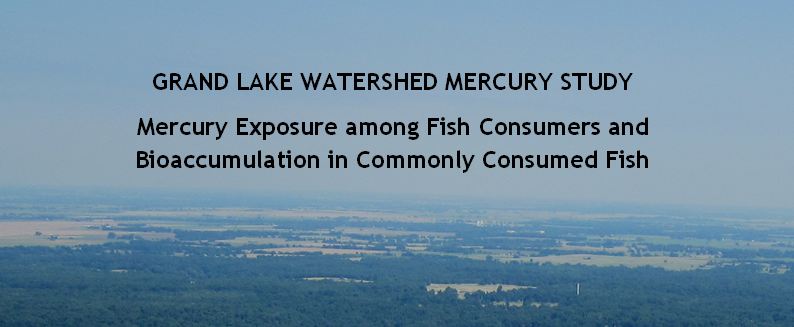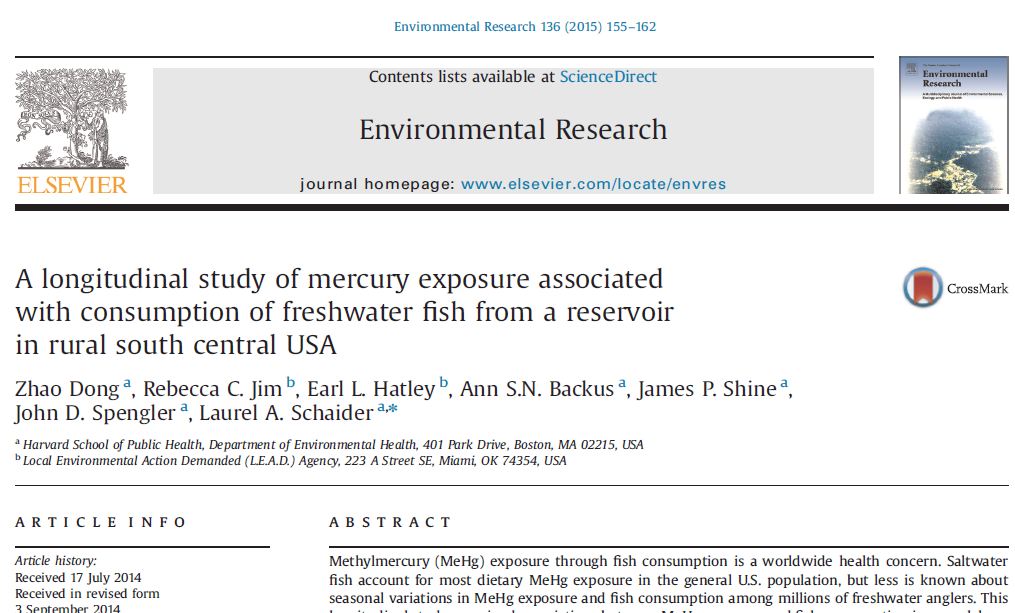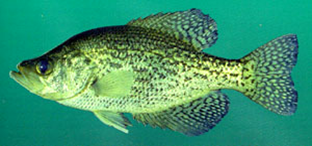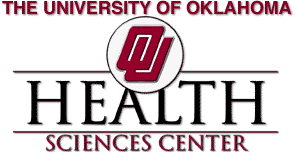FISHWe measured mercury levels in over 1,400 fish from Grand Lake and Lake Hudson. Learn more |
PARTICIPANTSWe tested mercury exposure in 150 residents and asked about their fish consumption. Learn more |
COMMUNITYWe are grateful to the community members and local agencies who contributed to our study. Learn more |








